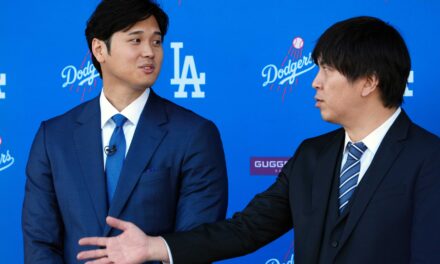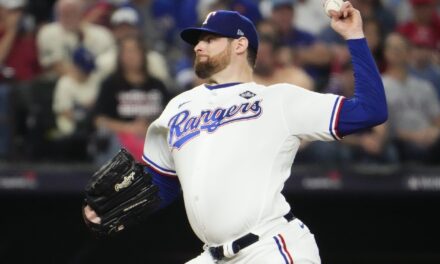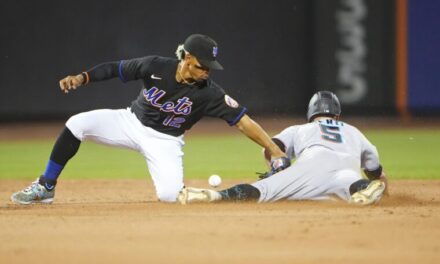
Major League Baseball has had an antitrust exemption since a Supreme Court ruling in 1922. The U.S. Senate Judiciary Committee has decided to delve into the antitrust exemption, in order to determine if the century-old ruling makes sense in the current environment.
What is an antitrust exemption?
First, let’s take a look at what antitrust laws set out to do. Essentially, these laws attempt to ensure that there is competition among businesses, which theoretically results in better outcomes for consumers and employees. Chron.com summarizes antitrust laws in these words:
They ban practices like price fixing, bid rigging and other shady dealings that could result in one or two organizations gaining a monopoly power over the competition. Legislation is built on the belief that competition results in lower prices and better outcomes for consumers.
If car manufacturers or airlines got together and decided how much they would charge for their products and services, they could set prices where they wanted to, and consumers who need these products or services would have limited alternatives to accommodate their needs. An antitrust exemption holds that the industry in question is not subject antitrust laws, and therefore providers or companies within that industry may collaborate, which could result in anti-competitive practices.
How does this relate to Major League Baseball
MLB’s antitrust exemption, (the only sport to have one) allows its teams to collaborate on matters affecting the game. Some of these matters make sense for collaboration, hence you can see why the exemption was given in the first place. Teams need to mutually decide the game’s rules, how many games the schedule will have, etc. The issue arises when teams collude to establish things like players’ salaries. At that point, teams are using their collective power to restrict a free labor market, because there is no other league (at the same level) where players can take their services.
Major League players have established a union, which serves as the counterbalance to the antitrust exemption. The union gives players a collective voice on their working conditions, that they can leverage in negotiations with the clubs. The two sides are conceptually on similar terms to hash out terms of employment. We saw plenty of this in the lockout that delayed the season.
Why is this coming up now?
The working conditions of minor league players have inspired Senators Durbin (D-IL), Grassley (R-IA), Blumenthal (D-CT), and Lee (R-UT), who are on the Judiciary Committee, to send a letter to a non-profit organization, Advocates for Minor Leaguers, seeking information on how MLB’s antitrust exemption is impacting Minor League Baseball.
It’s not hard to figure out. Minor League players are not represented by the Major League Baseball Players’ Association, so the major league teams do to them exactly what they did to major league players before the rise of the MLBPA. The teams establish salary ranges for players, and determine how many teams there will be in the minor leagues (contracting them as they see fit). In an article in The Athletic, Evan Drellich provides the following from Senator Grassley:
“This is about ensuring a level playing field for the Minor Leagues and its players,” said Grassley in a statement. “MLB’s special antitrust exemption shouldn’t be imposing labor or contraction problems for Minor League teams and players. Baseball is America’s pastime, and that means more than just the Major Leagues.”
Is it possible that the antitrust exemption could be repealed, even though the current case against it is using minor league players as the aggrieved parties? From the article cited:
“The Supreme Court has repeatedly acknowledged that was an error and refused to extend the exemption to other professional sports,” Harry Marino, executive director of Advocates for Minor Leaguers, said in a statement. “The Court has left it to Congress, however, to fix the mistake. Today, four senior United States senators — including two from each political party — took a significant step toward doing just that.”
What would the impact be if the exemption is taken away?
According to Drellich’s article, business matters such as how teams sell merchandise, and how they restrict viewing access to games (i.e. blackouts) could all be in play in a world where MLB does not hold an antitrust exemption. Grassley understands the frustrations of blackouts. From the referenced article:
Grassley represents Iowa, where MLB’s territorial rights prevent people from watching games of the Brewers, Cardinals, Cubs, Royals, Twins and White Sox through MLB’s streaming service, MLB.tv. (The only way to legally watch those teams in Iowa would be to subscribe to a distributor, or multiple distributors, with those teams’ respective regional sports networks.)
“I can tell you, the periodic blackouts are a very frustrating experience for a lot of Iowans.”
Interestingly, there is cross-aisle support for challenging MLB’s antitrust exemption. Other senators support looking into the exemption, including Ted Cruz, Marsha Blackburn, Marco Rubio, and Josh Hawley (all Republicans) and Independent Bernie Sanders.
After the response to the request for information is received, the committee will determine how to proceed. They make take on just the part of the exemption that impacts minor leaguers, or they may target the entirety of it.
Either way, some change may be coming. Either minor leaguers would have better conditions, or MLB may have to change certain things that impact fans. Also, if the antitrust exemption is taken away, MLB would be subject to the full gamut of labor laws, which would enable labor matters to be taken to court and may mitigate future lockouts and strikes.
Particularly after last winter, the last one may be the best benefit to baseball fans everywhere.


